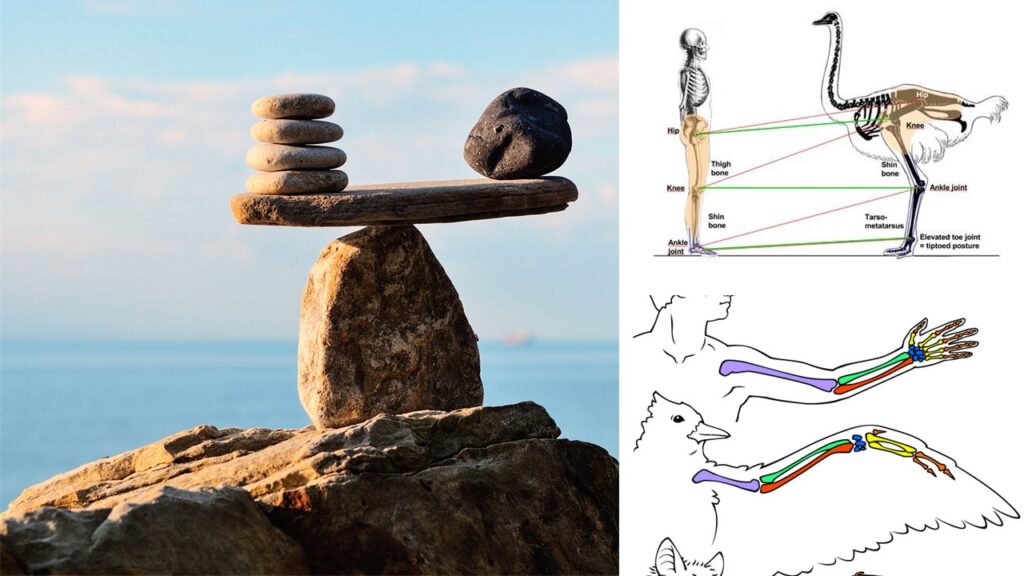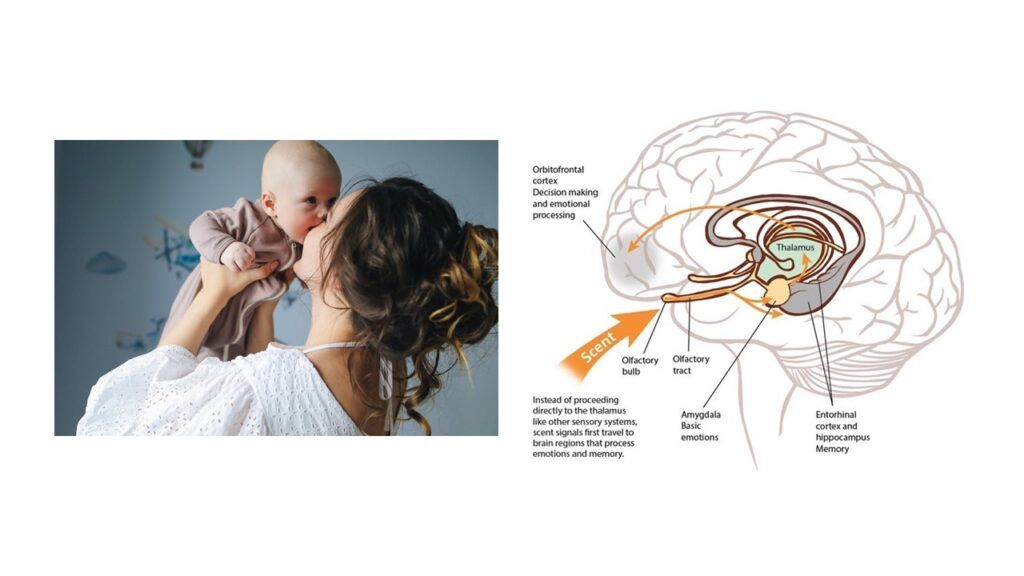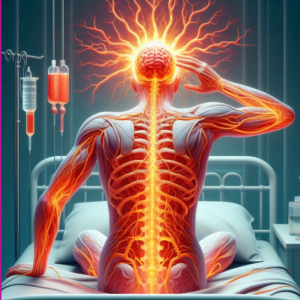In a previous article, we explored how our evolution favored species that made strong and wide interdependent networks. We discussed how brain was at the driver’s seat for developing, utilizing and expanding such networks. Indeed, brain proved to be the best weapon that any species can have in this continuous battle of evolutionary survival. Better the brain in its capacity to connect with other members of the species, better is the ability of that species to survive.
While we acknowledge the superiority of our brain, we have always lamented about how weak our eyes, ears, nose, muscles and other organs are when compared to other animals around us.
In this part, we will challenge that notion!
Table of Contents
“Budget” Prioritization Drives Evolution
We discussed in the one of the previous articles a concept called “evolutionary budget”. In that we saw how the metaphorical “sculpture” of evolution always has similar budget for each species. So, an upgrade in one attribute means compromising in something else. For example, a bird might have powerful wings. But that comes at the cost of sacrificing athletic legs that a horse may have. Similarly, a tiger has razor sharp claws and dagger like teeth- but he doesn’t have gills and can’t swim underwater like a fish. This concept of “evolutionary budget” is of course just a framework to imagine how evolution works. On deeper look, this concept emanates from the fact that life is an efficient ecosystem. What’s needed becomes powerful and what’s not needed dies down. So, if a bird is going to mostly fly and not run to sustain its life, it’s really not worth an “evolutionary investment” to be wasted in evolving strong athletic legs. It rather makes more sense to spend the “budget” in making efficient wings. Similarly, there is no point wasting this budget developing gills for a tiger if he is not going to spend his life in water.

We have also seen that brain has been the costliest, but the most important weapon the “sculptor” of evolution could equip any species with. Brain’s ability to process information and make connections makes it the ultimate weapon that any species can yearn for, to leapfrog its evolution. The more powerful the brain is, the stronger and wider the connections it can make. These connections are not just internal (between different organs eg. between eyes and muscles while playing cricket), more importantly they are also external (between different brains eg. an group of soldiers trying to invade a terrorist hide- out).
Humans beings are believed to be the highest evolved of all animals- and this happened because the whole evolutionary budget has been dedicated to equip us with the best available brains. Our brains make the best connections, both internal as well as external.
If the survival advantage depends on the strength and extent of connections an organism makes, why shouldn’t other body parts also evolve to support the same. This theory immediately questions our earlier observation that with evolution only brain kept getting stronger, while other body parts did not. Maybe, we need to relook as those evolutionary changes once again with a broader lens looking at the whole organism, rather than just evaluating organs and appendages individually.
In fact, current research in this field does indicate that all the tissues and organs and appendages evolved such that they became more efficient in supporting brain in making those “connections”. So, on one hand, brain was evolving to become more and more efficient in collecting and processing information and making co-operative connections with other organisms. On the other hand, even all other organs were evolving such that they can be better in supporting brain in its role.
Nose- Listen To It When It Smells “Fishy”
Take example of nose. In the first part of this series, we lamented by saying that we have got weak nose whose power of smell is way weaker than other animals such as dogs and bears. Years of research actually led scientists believe for a long time that nose is becoming rudimentary.
Data did suggest that humans rapidly lost much of their sense of smell over the period of evolutionary history. Scientists discovered that although humans have the same number of genes for smell detection as other primates (about 1,000), in humans more than half these no longer function.
Humans have only 350 functional genes for driving the sense of smell, compared with other mammals, e.g. mice, which have about 1,100 active genes.
But that is a very narrow way of evaluating the power of our nose. Actually, our nose is highly evolved compared to any other animal. We don’t need to have a sense of smell as powerful as that of a dog. We need our sense of smell to primarily drive connections with other human beings!

In animals, the nose is quite near the ground. Too many odors contaminate each other there. And animals have less efficient brains than ours. Both these factors mean that animals would need a very powerful sense of smell in the nose itself for a large range of chemicals, so that they can accurately locate their food or detect danger.
Humans are bipedals. Our nose is much away from the ground. Hence odors emanating from the surrounding is not as contaminated as in case of animals. Then there is a powerful air purification function in our nose that further cuts down this contamination. And the olfactory area (area of nose where “smell” really happens) is located behind this filtration mechanism, and is close to a very powerful brain. Our powerful brain allows us to subconsciously analyze and compartmentalize each variant of smell and link it with various experiences.
As a rule, we are not good at smelling odors we don’t need, and in those where it’s needed our nose can beat the best “nosy” animal out there!
More importantly, our sense of smell, is primarily geared towards detecting those smells which help evaluate partnerships. The amount of information one can gauge about a person solely from his or her scent is impressive. A huge body of evidence now conclusively show that humans can use smell signals present in body odor to assess sex, personality including dominance, actual fertility, diet, genetic compatibility, health status, and age. Humans also have the capacity to recognize kin via body odor, which may be important in mate choice in order to avoid inbreeding and avoiding genetic diseases.
We may not realize this, and you might find these claims to be unbelievable. But, the research findings are irrefutable.
In an experiment published in 2014 in the journal Psychological Science, the researchers showed that people could tell who showed signs of sickness by the smell of their body odor. This is an important capability from an evolutionary standpoint. It’s difficult for humans to get attracted to an unhealthy partner, thus avoiding passing genes to next generations via such partners.
One of the strongest partnerships a man can develop, is with another woman. Such partnerships allow procreation and expansion of family, leading to progression of species. From the eyes of nature, our sole purpose of existence is to contribute towards betterment of the species in terms of survival. Hence partnership between men and women, which is the key towards species progression, get incentivized by the human biology itself. Studies show that axillary extracts from men make the ovulatory cycles of women more regular. Women tend to be healthier, as measured by hormonal balances, when they are physically closer to their male partners. This explains the finding that levels of “male” odorants are linked to perceptions of sexual attractiveness by women, and that women say they feel more relaxed in the presence of male axillary extracts. On similar lines, axillary and vaginal secretions of women as more pleasant to men when secreted during the pre-ovulatory or ovulatory phase of their menstrual cycle. Thus, the sense of smell helps a man get attracted to a woman when she is more likely to get pregnant post sexual activity. This is another example of how human biology incentivizes male- female partnership through sense of smell so that species can develop.
You will be surprised to know that the that odorants from the breasts of lactating women can disrupt the menstrual cycle of nulliparous women. This is a competitive form of partnership, where one body is trying to conserve resources for the new baby by not allowing other body to give birth to another baby!
Several studies in babies who are only a few weeks old have demonstrated that they can identify, and are attracted to, both the axillary and the breast odours of their own mother but not of other mothers, and that this is not based upon memory of that odour. Mothers too can recognize the odour of their own baby.

There is a huge pool of evidence suggesting that emotions have a smell. And these smells can infect others with the associated emotions. Imagine you going out to meet a friend who had been watching and enjoying a comic show by a stand- up comedian. And she has been laughing uncontrollably. It is possible that you might end up smiling instantly if her sweat odor reaches your nose! And if she has been was an extremely scary movie her body odor can make you tremble with fear!
In short, our nose is able filter out useless odors, focuses on quality odors and and is able to derive tremendously rich amount of information important for our survival. It does “much more with so less” when compared to what noses of other animals can do.
These all lead to simple rule that we may follow in our life:
“Don’t ignore your instincts and listen to your inner voice. Your inner voice might be your nose telling you what’s the right thing to do!”
Human Ears- Hear the Devil That Lies in The Details
Evolution of our ears mimics follows a similar pattern. Our ears evolved to support our brain in forging strong connections with other individuals.
Vibrations in the air are critical pieces of information. These vibrations, if captured and interpreted accurately, can help predict the nature of the threat or opportunity nearby. When a lizard moves, the friction of its feet against the ground and the air in vicinity creates waves of vibrations. Hence, for organisms such as insects survival is heavily dependent on having a sharp sense of hearing to catch these vibrations.

But, for us, our survival is dependent on how well we connect and co- ordinate with each other. Hence, we use the same sound vibrations travelling through air to understand each other and collaborate. Through the tools available in and around our mouth we create specific vibrations, which are intended to be picked up and interpreted by other human beings around us. We call this process as speech! The vibrations of speech, depending upon the amplitude and frequency, can relay the emotions and intent of the speaker with great accuracy. To enable such interpretation, we have a very unique set of ears. A quick beginner’s look at the structure and functions of a human ear might make one believe that humans have amongst the weakest ear on this earth. That might be true- if the aim is to detect movement of a mouse hiding in some underground hole and hunt that mouse. But we, as humans, are way past that archaic level of evolution. What is critically important for us is to understand and analyze what the person in front of us is trying to communicate via his/her speech. Much of these interpretations are way deeper than the literal meaning of the words themselves. The same set of words can have 10 different meanings depending on the tone and pitch of the speech. Hence, our ears need to be sharp and specific enough to catch these small differences in human speech. Anything else is simply a useless piece of noise, in most cases.
Smaller animals and insects tend to make high frequency sounds. Their ears are also remarkably well developed to catch such high frequency sounds. High frequency sounds travel for short distances, and work as excellent signals for organisms small in size. While for such small animals, these high frequency sounds convey information determining life and death, for us these tiny vibrations of insects and lizards moving around are mostly irrelevant. In fact, for us, it would be, beneficial if we can somehow mask these useless “noises”- else they would end up polluting the sounds that we really want to interpret. And hence, humans have amongst the poorest ability to hear high frequency sounds.
What we saw in case of our nose- same observation holds true for our ears as well. Our ears filter out all the useless vibrations, perceive only the useful ones and derive exceedingly rich information from them that contributes eventually to make brain better connections.
Interpreters of Brain- Eyes, Hands and Face

Even with the same tone and pitch, the same set of words might fail to convey the true intent of the speaker. The hand gestures, the facial expressions convey much deeper information about what the person in front really want to say. And our eyes are built exactly to understand and evaluate these visual signals. We don’t need our eyes like any eagle to see what’s happening miles away. Using brain and the awesome connections it makes much more is possible. I can just call up someone over cellphone to understand what’s going on at a location which might be on the other side of the earth- he might even send me videos of that event. More importantly, I really need to catch all the visual signals I can gather from the other person standing in front of me. This information, together with the auditory and olfactory signals, is analyzed by my brain to decide on the next move so that a profitable partnership can be developed with the other person.
This is real reason why short- sightedness is way more common than long sightedness amongst people wearing spectacles- near vision is far more important than distant one.
As we observed earlier, from biological standpoint, the best partnership is the one that leads to betterment of the species in terms of evolution. Our eyes are linked to our brain in such a way that we are easily able to determine who is fit for partnership as a mate. Hence, a tall muscular young man is sexually more attractive to most females compared to a short obese old man. This is because the former has, most likely, healthier genes that can be passed to the future generations if mating happens. But, of course, evolution is not that simple. It is possible that a tall muscular young man has no good brain. And this will keep him poor and unsuccessful and this in turn will be unfavorable for better survival of future children. Thus, after an initial “longing” towards this tall muscular young man, a female will quickly lose interest if that person is with low intelligence. Such female will eventually gravitate towards an intelligent man who is socially successful (but maybe not so young and good looking). We may curse such females- but we need to understand that it’s pure biology that’s driving her choices. The same is true even for males, by the way.
Intelligence and social maturity is way more intoxicating than beauty.
During any conversation each person’s eyes are capturing all the signals they can, which are then analyzed by the brains. My brain is trying to determine what next move leads to MY benefit. Similarly, the other person’s brain is trying to determine what next move leads to HIS benefit. Then, the shortest and the best path forward for both is to try and determine what next move leads to OUR benefit. This is what leaders do. Hence, today most business schools teach importance of WIN-WIN agreements.
While eyes capture signals, face and hands generate signals. Using the muscles of the face, we express grief and pain or happiness and pleasure. Using tongue and the muscles around the mouth, we modulate the sounds emerging from our throat- this leads to speech. Speech is amongst the most evolved form of communication that developed solely because of the advanced brain we have. In other animals, facial muscles don’t do much except maybe help chewing the food they eat or lick the wounds they bear after a fight. Most animals use forelimbs for walking or fighting. In carnivorous animals they are studded with sharp claws that can rip off necks. The muscles supporting these limbs are way stronger than what we humans have. But we don’t need such sharp claws. We don’t need such strong muscles. We don’t use our forelimbs for walking. We rarely use them for fighting- but that’s never the primary function. Our forelimbs are free. We don’t even call them forelimbs. Loosely we call them hands. Technically, each of our forelimbs have 3 parts- arm (from shoulder to elbow), forearm (from elbow to wrist) and arm (from wrist to edge of fingers). The movement of these are primarily used for communication and eating.
We rarely think about it- but a game like “dumb charades” is possible only because we can communicate a lot using our hands!
At this point, do remember that even eyes generate signals. The pupils of the eyes have been referred to as window to the man’s soul! A dilated pupil indicates that the person in front of you in either interested or excited or under stress. The logic is simple- whenever brain is “interested”, the eyes start capturing even the minutest of information that they can gather. To do so, the pupils get dilated allowing maximum amount of light reflecting from the “subject of interest” to enter. These light signals then pass through the convex lens inside our eyes and fall upon the retina located behind the lens. Retina converts this concentrated beam of light into electrical signals which are then carried by the nerves to brain.
Pupil dilatation tells a lot about what a person is thinking. If you are dating someone and his/her pupils dilate seeing you, you can be sure that he/she is in love with you! Reverse is also true- if pupils are not dilated it means you are not interesting to the other person. It’s no surprise when scientists observed that pupils can dilate to almost thrice the normal size while watching pornographic films.

Expert card players judge other players and guess the bluff by closely observing for pupil dilatation. Pupils dilate when one is excited looking at great cards; and the experts then know it’s best not to bet against you. Best way to beat such experts is to wear dark glasses! Similar approach is used by expert traders during negotiations- if the deal is exciting for the buyer, his/her pupils will dilate and the expert now knows that he can reject any further attempts by the buyer to reduce the prices!
There is Power In Weakness
A dog can make fun our sense of smell. We may feel ashamed of our ears if we compare with those of a deer. An eagle can see way beyond what we can dream of seeing using our eyes. We look too weak- we can’t swim like a fish, we can’t fly like a bird, we can’t run like a cheetah or fight like a tiger. But, we have a brain which is the best out there in making connections. And with the connections we make with other human beings around us, we can hear even a whisper made in some corner of universe, observe and even fly planets that no eagle can imagine, cage and domesticate hundreds of mighty tigers, explore depths of oceans where life struggles to even exist- we can today evolve in seconds to survive in any condition that other species will take millions of years.
And our eyes, ears, nose, hands- they are not really weak. They just look weak. They are not interested in wasting time and energy in building individual capabilities. They are interested in connecting individuals- and in that they are more powerful than any of their counterparts from other animals in nature.
The best way to grow stronger and increase your chance of survival is by helping others.
INTERDEPENDENCE is 100 times more powerful than INDEPENDENCE.
By now, you must have grasped the pattern of evolution. Interdependence is stronger than independence. Rather than equipping individual organisms with super weapons and making them individually stronger, evolution tends to favor characteristics that lead to formation of inter- individual bonds. Time and again, it has been proven throughout the history of evolution that a well co- ordinated group of 10 weak individuals can be far more powerful than 10 very strong but unconnected individuals.
Indeed, a single pen is mightier than thousand swords!
Concluding Remarks
In this post, we explored how every organ evolved over millions of years to support the rapidly evolving brain so that species can forge better connections with others as evolution proceeds. The more connected a species is, more powerful is that species in terms of survival. This power does not come from strong muscles, or sharp claws of any such physical weapons. It’s only with extreme information processing and intelligence that a species can develop formidable networks and master the game of survival.
Soon, I will write another article, where we will explore how nature rewards any individual contributing towards development of such network. In this intellectually exciting segment, you will realize that the magnitude of such rewards conferred by nature is directly proportional to the extent and the strength of the networks one creates in his/her life- time.






Perfect work you have done, this website is really cool with wonderful information.
I’d have to examine with you here. Which is not one thing I usually do! I take pleasure in reading a post that may make folks think. Additionally, thanks for permitting me to comment!
Thank you for your compliments!
I simply needed to appreciate you again. I am not sure the things I might have carried out in the absence of the type of opinions revealed by you concerning such situation. It became an absolute scary matter in my view, but considering the very skilled style you solved the issue took me to leap over joy. I am just thankful for your service and trust you find out what a powerful job you are always putting in instructing others through your websites. I know that you haven’t got to know all of us.
Thank you for your compliments!
Someone essentially lend a hand to make seriously articles I might state. This is the very first time I frequented your website page and so far? I surprised with the research you made to create this particular post amazing. Great job!
Thank you for you compliments!
Hello, Neat post. There is an issue together with your web site in web explorer, would check thisK IE nonetheless is the marketplace leader and a big component of folks will omit your great writing because of this problem.
Would you know how I can address this issue? I am not a techie. I just love medical science and write about it.
Great website! I am loving it!! Will be back later to read some more. I am bookmarking your feeds also.
Thank you for you compliments!
I dugg some of you post as I cerebrated they were very useful very beneficial
Greetings! Very useful advice in this particular post! Its the little changes that will make the most significant changes. Thanks for sharing!
Great website. A lot of useful info here. I’m sending it to a few friends ans also sharing in delicious. And naturally, thanks for your effort!
I am glad that you found my post useful!
Thank you for the auspicious writeup. It actually was once a enjoyment account it. Look advanced to far added agreeable from you! By the way, how can we communicate?
Write more, thats all I have to say. Literally, it seems as though you relied on the video to make your point. You obviously know what youre talking about, why waste your intelligence on just posting videos to your site when you could be giving us something enlightening to read?
What videos are you referring to?
Hi there, just became alert to your blog through Google, and found that it is really informative. I’m going to watch out for brussels. I’ll appreciate if you continue this in future. Many people will be benefited from your writing. Cheers!
I am really happy that you enjoyed reading my post!
Perfectly pent content, Really enjoyed looking at.
I know this web site offers quality based articles and extra information, is there anyother web site which offers such information in quality?
Valuable info. Fortunate me I found your site unintentionally, and I am shocked why this accident did not came about in advance! I bookmarked it.
Pretty section of content. I just stumbled upon your weblog and in accession capital to assert that I get in fact enjoyed account your blog posts. Anyway I will be subscribing to your feeds and even I achievement you access consistently fast.
Very efficiently written story. It will be helpful to anyone who employess it, as well as myself. Keep up the good work – looking forward to more posts.
Well I really liked studying it. This post provided by you is very effective for correct planning.
Hello.This article was really motivating, especially since I was searching for thoughts on this subject last Thursday.
Magnificent site. Plenty of helpful info here. I am sending it to several buddies ans additionally sharing in delicious. And of course, thanks to your sweat!
Thank you for your sharing. I am worried that I lack creative ideas. It is your article that makes me full of hope. Thank you. But, I have a question, can you help me?
This is one awesome article. Will read on…
Very informative blog.Much thanks again. Much obliged.
I am so grateful for your article.Much thanks again.
Hey, thanks for the blog post.Really thank you! Really Cool.
Very neat blog.Really thank you! Cool.
I loved your article.Thanks Again. Great.
wow, awesome article post.Really thank you! Great.
wow, awesome article.Really looking forward to read more. Fantastic.
I really liked your post.Much thanks again. Fantastic.
Im thankful for the article.Really thank you! Really Great.
Thank you ever so for you blog post.Really thank you! Will read on…
Wow, great post.Much thanks again.
A big thank you for your article. Much obliged.
I appreciate you sharing this blog post.Really looking forward to read more. Cool.
Fantastic blog article.Much thanks again. Will read on…
I truly appreciate this blog. Awesome.
Thank you for your article. Much obliged.
Wow, great blog.Thanks Again.
Major thanks for the blog post.Really thank you! Great.
Im obliged for the blog.Really thank you!
Wow, great blog article.Really thank you! Great.
Im grateful for the article post.Much thanks again. Will read on…
A big thank you for your article post.Really thank you! Awesome.
Hey, thanks for the post.Really looking forward to read more. Cool.
wow, awesome article.Much thanks again. Much obliged.
Fantastic blog.Thanks Again. Keep writing.
I truly appreciate this article post.Much thanks again. Want more.
Thanks-a-mundo for the article.Much thanks again. Will read on…
I appreciate you sharing this blog article. Much obliged.
Im thankful for the article post.Thanks Again. Will read on…
Im grateful for the article post.Really looking forward to read more. Will read on…
I really liked your blog.Much thanks again. Awesome.
Muchos Gracias for your post.Really thank you! Much obliged.
Hey, thanks for the blog article.Really looking forward to read more. Will read on…
Awesome article post.Thanks Again. Great.
Thanks again for the blog. Much obliged.
Thanks for the blog post.Much thanks again. Much obliged.
Im thankful for the article post.Much thanks again. Really Great.
A round of applause for your blog post.Thanks Again.
Im thankful for the article post.Really thank you!
Thanks so much for the article.Really thank you! Great.
Im thankful for the post.Really thank you! Really Cool.
Your article gave me a lot of inspiration, I hope you can explain your point of view in more detail, because I have some doubts, thank you.
Major thankies for the blog article.Really thank you! Great.
Thanks for the blog article.Thanks Again. Awesome.
I was recommended this blog by my cousin. I am not sure whether this post iswritten by him as nobody else know such detailed about my trouble.You are incredible! Thanks!
Looking forward to reading more. Great article. Much obliged.
Im obliged for the blog.Really thank you!
This is one awesome blog post.Really looking forward to read more. Awesome.
Fantastic blog.Really thank you! Will read on…
A big thank you for your blog.Thanks Again. Want more.
Hey, thanks for the post. Keep writing.
Thanks a lot for the article. Awesome.
Very good blog post.
Im grateful for the blog.Much thanks again. Cool.
Major thankies for the blog post.Much thanks again. Fantastic.
Awesome article post.Much thanks again. Awesome.
Looking forward to reading more. Great blog article.Thanks Again. Will read on…
Awesome blog.Thanks Again. Great.
This is one awesome blog post.Thanks Again. Keep writing.
A big thank you for your article post.Much thanks again. Great.
Very good post.Much thanks again.
I really enjoy the blog.Thanks Again. Want more.
Say, you got a nice blog. Really Cool.
Wow, great blog post.Really thank you! Really Great.
I cannot thank you enough for the post.
Awesome post.Really looking forward to read more. Really Cool.
Thanks again for the post.Thanks Again. Keep writing.
wow, awesome blog post.Really thank you! Great.
Very neat article.Really looking forward to read more. Will read on…
I really enjoy the article.Really looking forward to read more. Great.
Really enjoyed this blog.Really looking forward to read more. Really Cool.
Fantastic blog article.Thanks Again. Really Cool.
Hey, thanks for the post.Really looking forward to read more. Really Cool.
wow, awesome article post.Much thanks again. Want more.
Im thankful for the blog post.Thanks Again. Really Great.
Thank you for another wonderful article. Where else could anyone get that type of information in such an ideal way of writing? I have a presentation next week, and I’m on the look for such info.
Im obliged for the article post.Thanks Again. Really Cool.
Thanks again for the blog.Really looking forward to read more. Great.
Really enjoyed this blog post.Really thank you! Really Cool.
This is one awesome blog.Much thanks again. Keep writing.
Your style is so unique compared to other people I have read stuff from. Many thanks for posting when you’ve got the opportunity, Guess I’ll just book mark this blog.
Enjoyed every bit of your article post. Keep writing.
A big thank you for your blog.Thanks Again. Great.
A round of applause for your blog.Really looking forward to read more. Much obliged.
Really appreciate you sharing this post.Really thank you! Awesome.
Thanks a lot for the blog post. Much obliged.
Very good article.Much thanks again. Really Great.
Wow, great blog post.Really looking forward to read more.
Say, you got a nice article.Really looking forward to read more. Much obliged.
Thanks for sharing your thoughts on when. Regards
Asking questions are in fact pleasant thing if you are not understanding anything fully, however this post gives nice understanding even.
Hello! I’ve been following your blog for some time now and finally got the courageto go ahead and give you a shout out from Huffman Texas!Just wanted to mention keep up the great job!
whoah this blog is great i like studying your articles.Stay up the good work! You realize, a lot of individuals are searching round for this info,you could help them greatly.
Thanks for sharing, this is a fantastic blog post. Keep writing.
This is a topic that’s close to my heart… Cheers!Where are your contact details though?
Really appreciate you sharing this article post.Thanks Again. Really Great.
Great, thanks for sharing this blog post.Much thanks again. Cool.
Thanks for the blog article.Thanks Again.
Very good blog. Will read on…
A big thank you for your blog.Really thank you!
I value the blog post.Much thanks again. Will read on…
Great, thanks for sharing this blog. Really Great.
Thanks again for the post.Really thank you! Cool.
I really like and appreciate your blog.Much thanks again. Really Great.
Respect to article author, some superb selective information.
I cannot thank you enough for the article post.Really looking forward to read more. Really Cool.
A round of applause for your blog.Much thanks again. Really Great.
Lovely just what I was searching for.Thanks to the author for taking his clock time on this one.
Really appreciate you sharing this post.Really looking forward to read more. Awesome.
This is one awesome blog article.Thanks Again. Much obliged.
Say, you got a nice blog article.Really looking forward to read more. Fantastic.
I really liked your blog post.Thanks Again. Much obliged.
Major thanks for the blog post.Really thank you! Really Cool.
It’s onerous to find educated individuals on this topic, however you sound like you already know what you’re talking about! Thanks
My brother suggested I might like this web site. He was totally right. This post actually made my day. You can not imagine just how much time I had spent for this info! Thanks!
Sweet blog! I found it while surfing around on Yahoo News. Do you have any suggestions on how to get listed in Yahoo News? I’ve been trying for a while but I never seem to get there! Many thanks
I?¦ve recently started a web site, the information you provide on this site has helped me greatly. Thanks for all of your time & work.
Hey there! This is my 1st comment here so I just wanted to give a quick shout out and tell you I genuinely enjoy reading through your articles. Can you recommend any other blogs/websites/forums that cover the same subjects? Thanks a ton!
I think this is one of the most important info for me. And i’m glad reading your article. But should remark on few general things, The site style is great, the articles is really great : D. Good job, cheers
Awesome article.Much thanks again. Cool.
I?m not sure where you are getting your information, but good topic. I needs to spend some time learning much more or understanding more. Thanks for wonderful information I was looking for this information for my mission.
each time i used to read smaller articlesor reviews which also clear their motive, and that is also happening with this paragraph which I am readingnow.
Thanks a lot for the blog article. Really Great.
Very neat article post.Really looking forward to read more. Want more.
Outstanding feature
This is part of 3 parts series!
Hello, this weekend is fastidious in favor ofme, since this point in time i am reading this wonderful informative posthere at my house.
It’s arduous to search out educated individuals on this topic, but you sound like you realize what you’re speaking about! Thanks
A fascinating discussion is worth comment. I think that you should publish more on this topic, it might not be a taboo subject but usually people do not talk about such issues. To the next! Cheers.